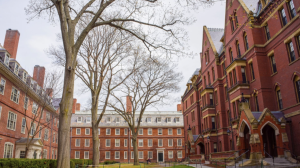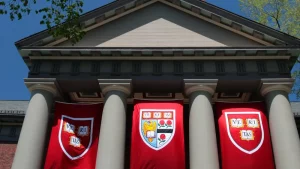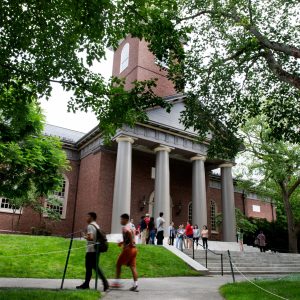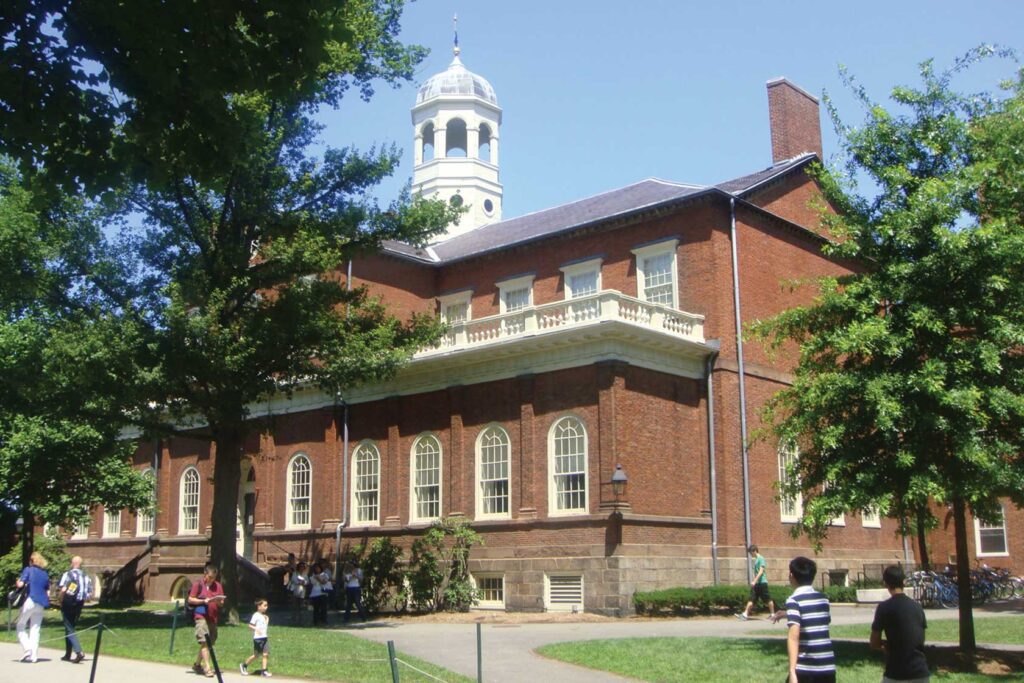Introduction
Harvard University, nestled in the historic city of Cambridge, Massachusetts, stands as an enduring testament to the pursuit of knowledge and academic excellence. Its roots trace back to the early 17th century, a time when the idea of higher education in the New World was in its infancy. Established in 1636 by the Massachusetts Bay Colony, Harvard was initially intended to train clergy and lay leadership for the young colony. Its inception marked a pivotal moment in American educational history, as it became the first institution of higher learning in the United States. The university’s early years were marked by modest beginnings, with meager resources and a small student body. However, Harvard’s trajectory changed dramatically when John Harvard, a young clergyman, bequeathed his library and half of his estate to the institution upon his death in 1638. This generous contribution not only provided much-needed financial support but also led to the college being renamed in his honor. Harvard’s growth surged, laying the groundwork for what would become an academic powerhouse revered globally. Over the centuries, Harvard has evolved, adapting to the changing landscape of education while steadfastly maintaining its commitment to academic rigor, intellectual exploration, and societal impact. Its sprawling campus, steeped in tradition and history, now hosts a diverse community of scholars, students, and staff from around the world, fostering an environment ripe for innovation, collaboration, and scholarly pursuit. Harvard University stands as an institution that not only cherishes its storied past but also looks ahead, embracing new challenges and opportunities in its ongoing quest for knowledge and academic excellence.

Historical Foundations and Evolution
Harvard University holds the distinction of being the oldest institution of higher education in the United States. Established initially as “New College,” it was renamed Harvard College in 1639 to honor its first benefactor, John Harvard. The college aimed to provide education steeped in Puritanical principles. Over time, it evolved into a thriving university that shaped the landscape of higher education globally. Throughout its history, Harvard has experienced substantial growth, diversification, and institutional expansion. The 19th century witnessed the establishment of professional schools, including the Harvard Medical School (1782) and Harvard Law School (1817), marking the university’s transition into a multifaceted institution. The 20th century marked a period of transformative change for Harvard. The university pioneered new approaches to education, embraced interdisciplinary studies, and continually adapted to societal shifts. It became a hub for cutting-edge research across various disciplines, cementing its reputation as a global academic leader.
Academic Excellence and Diverse Offerings
Harvard offers a diverse array of undergraduate programs across the arts and sciences. The undergraduate curriculum emphasizes critical thinking, interdisciplinary studies, and intellectual exploration, fostering a vibrant academic environment that encourages students to challenge conventional wisdom. Harvard’s graduate and professional schools span a wide spectrum of disciplines, including business, law, medicine, education, public health, and more. These schools are renowned for their rigorous academic programs, innovative research opportunities, and world-class faculty, attracting top scholars and professionals from around the globe. Harvard University has been at the forefront of groundbreaking research and innovation across various fields. From biomedical advancements to technological innovations, the institution’s research initiatives have led to transformative discoveries that have shaped industries and improved lives worldwide.

Distinguished Faculty and Alumni Network
Harvard boasts a faculty composed of distinguished scholars, Nobel laureates, Pulitzer Prize winners, and leading experts in their respective fields. These educators contribute significantly to research, teaching, and mentorship, enriching the academic experience for students and advancing knowledge across disciplines. The university’s alumni community includes a plethora of influential individuals who have made substantial contributions to various fields. From world leaders and Nobel laureates to trailblazing entrepreneurs and influential artists, Harvard alumni have left an indelible mark on society, shaping global discourse and driving positive change.
Campus Life and Cultural Impact
Nestled within its sprawling campus, Harvard University boasts an array of iconic landmarks, cutting-edge research facilities, extensive libraries, and revered cultural institutions. This environment fosters an enriching and nurturing space, encouraging students’ academic, social, and cultural development. However, Harvard’s influence transcends its academic boundaries, resonating across cultural, societal, and political realms. It stands not just as a seat of learning but as a cornerstone shaping the world’s cultural and societal landscapes. As a nucleus for intellectual exchange, the university hosts a myriad of conferences, lectures, and events. These platforms address pertinent global issues, serving as catalysts for dialogue, comprehension, and collaboration among diverse minds. Harvard’s commitment to fostering an inclusive environment that encourages open discourse and understanding is reflected in its role as a hub for profound intellectual conversations. The institution’s initiatives not only propel academic discourse but also inspire broader societal change, reinforcing its pivotal place in the global arena.

Table Detail
| Aspects | Details |
|---|---|
| Founding Year | 1636 |
| Location | Cambridge, Massachusetts, United States |
| Motto | Veritas (Latin for “Truth”) |
| Schools and Units | Harvard College, Harvard Business School, Harvard Law School, Harvard Medical School, and more |
| Notable Alumni | Barack Obama, Mark Zuckerberg, Bill Gates, Natalie Portman, Ruth Bader Ginsburg, and many more |
| Faculty | Nobel laureates, Pulitzer Prize winners, leading scholars and researchers |
| Research Impact | Groundbreaking discoveries in various fields |
| Campus Facilities | Libraries, museums, state-of-the-art research centers |
| Global Influence | Academic partnerships, conferences, cultural impact |
| Endowment | Multi-billion dollar endowment supporting scholarships, research, and initiatives |
| Mission | To educate and inspire future leaders, promote research, and advance knowledge |

Conclusion
Harvard University stands as an unparalleled institution that encapsulates centuries of academic prowess, groundbreaking research, and a commitment to excellence. Its legacy transcends time, leaving an indelible mark on the fabric of higher education and global society. The journey of Harvard from its humble beginnings to its current stature as a world-renowned academic powerhouse is a testament to its adaptability, resilience, and unwavering dedication to intellectual advancement. Its evolution reflects not only the changing landscape of education but also its proactive role in driving innovation and progress. Harvard’s commitment to fostering an environment of intellectual curiosity, critical thinking, and interdisciplinary collaboration has shaped generations of leaders, innovators, and visionaries. The university’s diverse academic offerings, distinguished faculty, and influential alumni network continue to inspire and empower individuals to push the boundaries of knowledge and effect positive change in the world. Looking forward, Harvard remains steadfast in its pursuit of excellence, constantly innovating its educational approaches, spearheading transformative research endeavors, and addressing the pressing challenges of our time. Its commitment to inclusivity, diversity, and global engagement further solidifies its role as a catalyst for positive societal transformation. In essence, Harvard University stands not just as an institution of higher learning but as an embodiment of a timeless commitment to intellectual rigor, innovation, and the pursuit of a better tomorrow. Its influence reverberates across continents, shaping minds, shaping futures, and leaving an everlasting imprint on the world’s collective quest for knowledge and progress.




